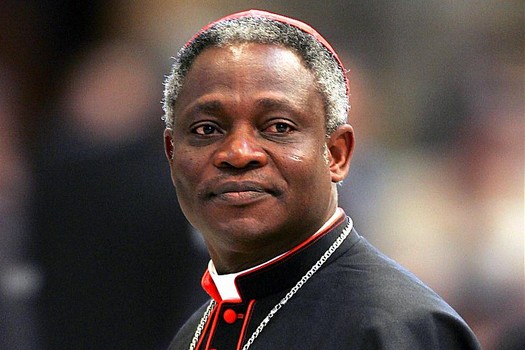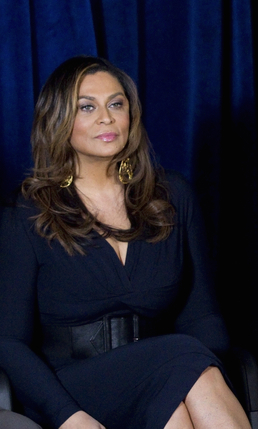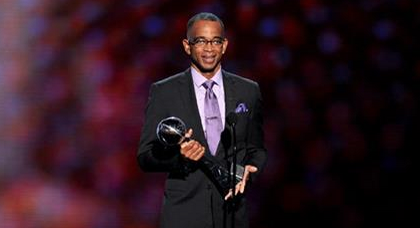2 Political analysts welcome call by Cardinal Turkson 2015

 Two political analysts have welcomed the call by His Eminence Peter Cardinal Appiah Turkson for urgent steps to be taken to address the political turmoil in the country ahead of Election 2016.
Two political analysts have welcomed the call by His Eminence Peter Cardinal Appiah Turkson for urgent steps to be taken to address the political turmoil in the country ahead of Election 2016.
However, while supporting Cardinal Turkson’s proposal for a national government of technocrats, they noted that the political challenges could be addressed within the current political system without having to break from partisan politics.
In separate interviews yesterday, the Executive Director of the Institute of Democratic Government (IDEG), Dr Emmanuel Akwetey, and a Senior Lecturer at the Political Science Department of the University of Ghana, Dr Ransford Gyampoh, stressed the need for an immediate dialogue among political parties to steer Election 2016 away from the volatility that characterised previous elections.
According to them, many people, such as Cardinal Turkson, were concerned about the volatile political situation in the country now and losing confidence in multiparty democracy, and so there was the need for an urgent dialogue to address the challenges.
The President of the Pontifical Council for Justice and Peace, Cardinal Turkson, in a New Year message to the nation delivered through the Daily Graphic last Monday, called for a break in partisan politics to give the nation a reprieve from its political turmoil.
He recommended that during that partisanship break, a national government of technocrats should be established to stabilise the political turmoil and fashion a national development agenda that would stand the test of time.
Cardinal Turkson also made other recommendations, including the need for more controls on the powers of the Executive President, strengthening of Parliament, and addressing the challenges of the winner-takes-all political system.
Triple Report
Dr Akwetey said there was the need to avoid what he described as a “third consecutive volatile elections” in 2016 because that would damage the image of the country.
He observed that the issue of recurring political volatility had not been addressed in the constitutional review process.
Dr Akwetey said IDEG, in collaboration with the Civic Forum Initiative, the National Peace Council and other civil society organisations, had undertaken nationwide consultations on how to address the threat of violence in elections and other political challenges.
He said the consultations culminated in a report titled the ‘Triple Report’ whose proposals had been tabled for dialogue among the political parties.
The report proposes the election of district chief executives on partisan basis to minimise the powers of the Executive President, strengthening of institutions such as the National Development Planning Commission and the civil service to enable them to deliver more efficiently, and supporting political parties to become not just election machines but also development institutions.
“We can have the dialogue going on right away. It’s a matter of getting our parties to talk before 2016,” he said.
Political parties
Dr Akwetey said there was the need to help political parties develop their manifestos and translate them into development programmes in line with the national development agenda.
He said political parties must also organise national congresses annually, adding that it was important for them to undertake serious research on policy issues.
While calling for radical political reforms, Dr Akwetey said if local government elections were organised on partisan basis, all political parties would have a role to play in governance and that would address the challenges of the winner-takes-all system.
Transitional & advanced democracies
For his part, Dr Gyampoh said the difference between transitional democracies and advanced democracies was that in the latter, the exercise of political choice during elections “is seasoned with rationalism that combines competence and popularity.”
“So in advanced democracies, people look for competence, expertise, experience and achievement in life before being voted for or given an appointment.
This ushers them into technocracy although they are democracies,” he remarked.
By so doing, Dr Gyampoh said, the government was able to implement effective policies in a manner that contributed to development.
“But in our part of the world, election thrives on popularity and not necessarily competence and experience. So those who contributed to the party’s campaign are those given political appointment.
“How do you expect someone who has not worked before after school to effectively and efficiently take decisions with developmental consequences?” he wondered.
Technocrats and politics
Dr Gyampoh said it was unfortunate that many technocrats shied away from politics, while a few of them were brought on board by politicians who won elections.
He stressed the need for political parties that won elections to bring on board technocrats across and beyond the political divide.
Civil service
Dr Gyampoh said the situation was worsened by the fact that the civil service, which was expected as a neutrally competent administrative machinery of the state, “is itself weak, corrupt and inefficient.”
“That is why the government oftentimes appoints advisors and personal assistants,” he pointed out, adding: “If the civil service is so competent, you don’t need to appoint many ministers of state.
Dr Gyampoh said in developed countries, the civil service ran the country and so only a few ministers of state were appointed.
Credit: Daily Graphic



